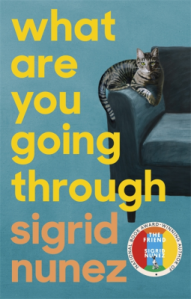
Tully Dawson is the best friend one could ever wish for. When James’ struggles with his parents become unsupportable, he takes him to his home. Their friendship is based on music and the bands they admire and what both of them are sure of: they never want to become like their fathers. Ayrshire sooner or later becomes too enclosed, simply too small for them, so together with some friends they plan a weekend in Manchester, one of 1980s hot spots of music. And they do have the time of their life in only a couple of hours. Even though they all move on afterwards, the friendship between Tully and James goes deeper and even though they live on different ends of the island, thirty years on, James is the person Tully calls first when he has bad news.
“I suppose we could have (…) asked his opinion, but being young is a kind of warfare in which the great enemy is experience.”
Andrew O’Hagan’s novel oscillates between celebrating youth and the time of total light-footedness and the darkest side of human life. In the first part, we meet a bunch of youngsters for whom the Tenth Summer festival at the G-Mex centre in Manchester is the biggest event in their life so far. In 2017, they have not only aged but also acquired another attitude to life. Both have their time and place, it is the privilege of the teenage years to be carefree and live for the moment, harsh reality will come later, and it does.
“ ’It’s like an explosion of life happening and then it’s gone,’ he said. ‘We had our time, buddy. I’ve come to terms with it (…)’”
What I enjoyed most was to see how James and Tully had formed a bond for life. They shared the good times and also the bad ones. Nothing, not even their wives, could come between them since only with each other they could talk openly. Tully is a truly charismatic character which you come to like immediately which makes it even sadder to see how fate does not grant him more time on earth. The end is deeply moving, but seeing how full of emotion and life the first part war, you can accept it even if you don’t like it. It raises some very core questions each reader has to answer for himself, the way O’Hagan confronts us with them, however, is brilliant.


